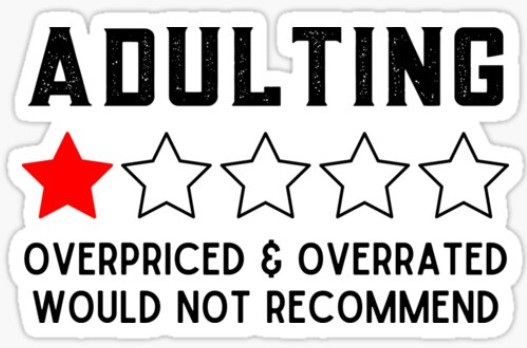Adulting 101 - Saving, Spending & Taxes
As a recent graduate in your early to mid-20s, you may have secured your first full0time job and are starting to build your life as an independent adult. However, with adulthood comes a range of responsibilities, including establishing a career, starting a family, raising child and taking care of ageing parents.
Regardless of your commitments and aspirations, financial literacy is a crucial aspect of adulting, with long-term implications for various aspects of our lives. Being financially savvy can help us avoid financial hardship and reduce the likelihood of falling into financial distress.
In this post, I will share my perspective on managing personal finances.
Budget for your NEEDS first
Calculate your essential expenses, such as transportation costs, food bills, insurance, utilities, telco bills, tax payment, parental allowance,to determine the amount you need to survive.
While the percentage of take-home pay allocated to spending varies depending on individual financial situations, a ballpark figure of 50% is recommended. If your essential expenses exceed 50% of your take-home pay, consider adjusting your lifestyle such as using public transportation instead of private, limiting food deliveries etc.
Maximise your dollar
Make the most out of your money by taking advantage of rebates and cashback from credit cards. With numerous credit cards available in the market, you are bound to find one that suits your spending habits. Many banks offer generous sign-up bonuses if you meet their minimum qualifying spend and do not already have a credit card from the bank. You can even stack rewards from multiple payment solutions to stretch your dollar. However, do not let the rebate/cashback requirements dictate your spending. If a card requires you to spend more than you usually do to qualify for the reward, look for another card instead.
Spend within/below your means
Never get into debt to fund your spending. If you have to borrow money to buy something, you cannot afford it. The only exceptions are mortgage and education loan. Unfortunately, overspending is common. According to OCBC's financial wellness survey 2021, 27% of credit card holders often pay only the minimum sum, while 15% spend beyond their means to keep up with peers [1]. Unsecured debt can balloon quickly due to high interest charges, and before you know it, you might be so badly laden with debt that it could set you back financially for years to repay what you owe.
Build an emergency fund ASAP
Saving rate varies depending on income and commitments. You may however take reference from the median saving rates of Singaporeans which stands at about 28.8% to roughly gauge how you are doing compared to others [2].
Regardless of your saving rate, aim to build an emergency fund of about 6 to 9 months' worth of expenses ASAP. This fund can help you handle unexpected expenses, such as medical bills, car repair, helping family members in financial trouble or to tide you through unemployment. Keep your emergency fund in highly liquid accounts with decent interest rate such as OCBC 360, DBS Multiplier, UOB One or CIMB FastSaver. After you establish your emergency fund, you could explore other options that offer higher returns, such as the Singapore Saving Bonds (SSB), treasury bills or other investments.
Don't pay more income tax than you should
Taxes are unavoidable, but you can reduce your income tax payable by taking advantage of various tax relief schemes. While most of these schemes are applied automatically, some, such as the parent relief require you to indicate your eligibility manually at the income tax portal. Check the list of relief at IRAS webpage to see what you can claim.
Take control of your personal finances
Adulting is not easy, but you can be in control when it comes to your personal finances. I firmly believe many financial distress are avoidable if we take steps to plan ahead and secure our financial well-being.
How are you managing your finances? Leave a comment below to share your tips and tricks!
[1] OCBC (2021). OCBC Financial Wellness Index. Extracted from: https://www.ocbc.com/group/financial-wellness-index/understand-the-index.html
[2] Seedly (2022). Here's How Much You Need to Save According to Your Age. Extracted from: https://blog.seedly.sg/how-much-savings-age/





Comments
Post a Comment